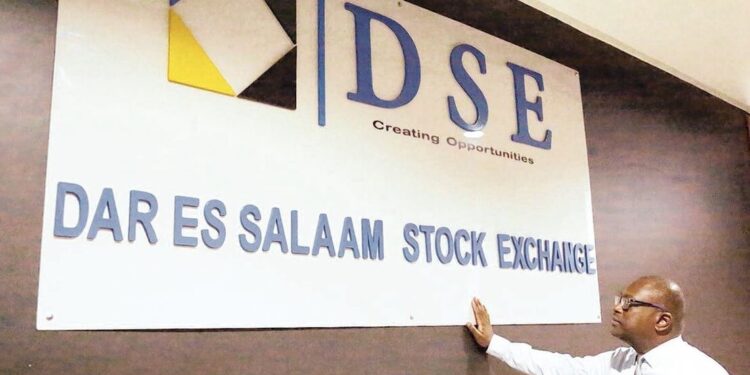Market activities at the Dar es Salaam Stock Exchange (DSE) registered an upside tick during the five-day trading session last week registering a 156 % increase in turnover to 1.72bn/- as compared to 675.2bn/- registered the previous week.
Data from the DSE however shows that a number of cross listed stocks experienced price declines leading to the overall decrease in market capitalization by 0.22% to 15.74bn/- while Domestic market capitalization went down by 0.26% closing at 10.81bn/-
The All Share Index (DSEI) closed at 1,888.79 points decreasing by 0.22%.
The top three trading counters during the week were CRDB, NMB, and TCCL, that dominated the market with 39.27%, 35.42%, and 8.78% of the overall market turnover, respectively.
Four domestic counters registered price gains within the week with SWISS leading the gainers with a 14.08% increase to close at 1,620/- per share.

TCCL/Simba also saw a price increase of 1.59% closing the week at 1,280/- per share while the self-listed DSE registered an increase of 1.18% closing the week at 1,720/- per share.
CRDB sustained its bullish run registering an increase of 1.06% closing the week at 475/- per share.
On the losers’ side, the heavily weighted NMB lost 2.78% of its value closing off the week at 3,500/- per share, impacting domestic market capitalization.
According to the Zan Securities Weekly Wrap Up, domestically, local investors continue to flood the market accounting for over 98% of March’s equity turnover so far.
The Zan Securities Chief Executive Officer Raphael Masumbuko said strong economic growth outlook and a positive trend in domestic equities continue to strengthen investor sentiments.
The Tanzania Share Index (TSI) trends at 5-year high levels, further banking stocks such as NMB and CRDB have returned to investors 15.8% and 20.2% respectively year to date.
“Our outlook for the year remains strong, we expect increased activities in the exchange to be fueled by growth stocks. As many investors are now seeking capital gains and dividend returns, slightly turning a blind eye to treasury bonds whereby yields are foreseen to remain at current levels,” Masumbuko said.







